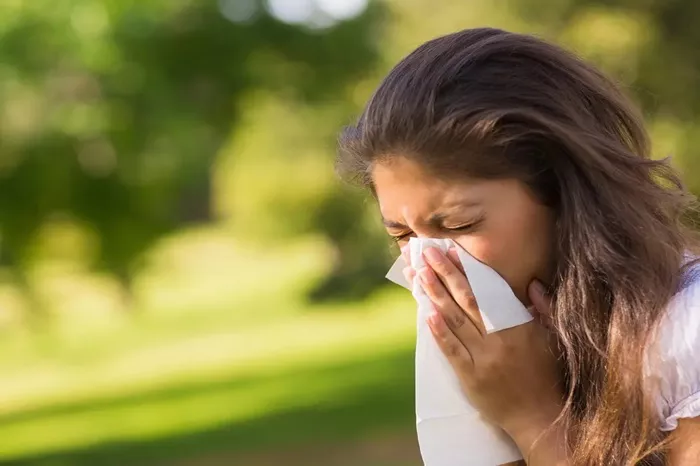Allergy shots, also known as allergen immunotherapy, are a common and effective treatment for allergies. However, despite their effectiveness for many individuals, there are cases where allergy shots may not provide the desired relief. If you find yourself in this situation, it can be frustrating and challenging to know what steps to take next. In this comprehensive guide, we will explore what to do when allergy shots don’t work, including alternative treatment options, potential reasons for treatment failure, and strategies for managing persistent allergy symptoms.
Understanding Allergy Shots
How Allergy Shots Work
Allergy shots work by exposing individuals to small doses of allergens, such as pollen, dust mites, or pet dander, over time. This exposure helps desensitize the immune system and reduce the severity of allergic reactions. Allergy shots are typically administered in two phases: the build-up phase, during which the dose of allergen is gradually increased, and the maintenance phase, during which the patient receives regular injections at a higher dose.
Effectiveness of Allergy Shots
Allergy shots have been shown to be effective in reducing allergy symptoms and medication use for many individuals. They can provide long-term relief from allergic rhinitis (hay fever), allergic asthma, and insect sting allergies. However, the degree of improvement can vary from person to person, and some individuals may not experience significant relief despite undergoing allergy shot treatment.
Reasons Allergy Shots May Not Work
Inadequate Treatment Duration
One reason allergy shots may not work is that the treatment duration may be insufficient. Allergy shots typically require several months to years of treatment to achieve maximum effectiveness. If treatment is discontinued prematurely or if the maintenance dose is not maintained for an adequate duration, it may not produce the desired results.
Incorrect Diagnosis or Allergen Selection
Another possible reason for treatment failure is an incorrect diagnosis or inadequate selection of allergens for immunotherapy. Allergy testing, such as skin prick tests or blood tests, is used to identify specific allergens triggering allergic reactions. If the wrong allergens are targeted or if additional allergens are identified later in the treatment process, it may hinder the effectiveness of allergy shots.
Underlying Health Conditions
Underlying health conditions, such as chronic sinusitis, nasal polyps, or uncontrolled asthma, can also contribute to treatment failure. These conditions may exacerbate allergy symptoms or interfere with the body’s ability to respond to allergen immunotherapy. Addressing these underlying health issues may be necessary to improve the effectiveness of allergy shot treatment.
Environmental Exposures
Exposure to high levels of allergens in the environment, such as pollen or mold spores, can overwhelm the benefits of allergy shots. Individuals living in areas with high pollen counts or who are exposed to allergens in their workplace may experience persistent allergy symptoms despite undergoing immunotherapy. Minimizing environmental exposures may be necessary to optimize treatment outcomes.
Non-adherence to Treatment Protocol
Consistent adherence to the treatment protocol is essential for the success of allergy shots. Missing doses, skipping appointments, or failing to follow recommended guidelines, such as avoiding allergen triggers or taking allergy medications as prescribed, can compromise the effectiveness of treatment. Maintaining regular communication with your healthcare provider and adhering to the prescribed treatment plan are crucial for maximizing the benefits of allergy shots.
What to Do When Allergy Shots Don’t Work
Consult with an Allergist or Immunologist
If you are not experiencing significant relief from allergy shots, it is essential to consult with an allergist or immunologist. They can conduct a comprehensive evaluation of your allergy symptoms, treatment history, and potential underlying factors contributing to treatment failure. Your healthcare provider may recommend additional diagnostic tests, adjustments to your treatment plan, or alternative treatment options.
Consider Alternative Treatment Options
If allergy shots do not provide the desired relief, there are several alternative treatment options available for managing allergy symptoms. These may include:
Allergy Medications: Over-the-counter or prescription medications, such as antihistamines, nasal corticosteroids, decongestants, or leukotriene inhibitors, can help alleviate allergy symptoms.
Allergy Avoidance: Minimizing exposure to allergens in the environment, such as pollen, dust mites, pet dander, or mold, can help reduce allergy symptoms.
Sublingual Immunotherapy (SLIT): Sublingual immunotherapy involves placing allergen extracts under the tongue to desensitize the immune system to specific allergens. It is an alternative to allergy shots and may be suitable for individuals who prefer a non-invasive treatment option.
Biologic Therapies: Biologic therapies, such as monoclonal antibodies targeting specific immune pathways involved in allergic inflammation, may be prescribed for severe allergic asthma or chronic hives that do not respond to conventional treatments.
Address Underlying Health Conditions
If underlying health conditions are contributing to treatment failure, it is essential to address these issues in conjunction with allergy treatment. Your healthcare provider may recommend additional medications, treatments, or lifestyle modifications to manage conditions such as chronic sinusitis, nasal polyps, or uncontrolled asthma.
Explore Lifestyle Modifications
Making lifestyle modifications can help minimize allergy symptoms and improve overall quality of life. These may include:
Allergen Avoidance: Implementing strategies to minimize exposure to allergens in the environment, such as using allergen-proof bedding, air purifiers, or avoiding outdoor activities during high pollen seasons.
Healthy Habits: Maintaining a healthy lifestyle, including regular exercise, adequate sleep, stress management, and a balanced diet, can help support immune function and reduce allergy symptoms.
Environmental Controls: Taking steps to reduce indoor allergens, such as keeping windows closed, regularly cleaning and vacuuming, and using HEPA filters, can help improve indoor air quality and minimize allergy triggers.
Seek Support and Resources
Living with persistent allergy symptoms can be challenging, both physically and emotionally. Seeking support from friends, family, or support groups can provide emotional encouragement and practical advice for managing allergies. Additionally, resources such as educational materials, online forums, or patient advocacy organizations can offer valuable information and support for individuals coping with treatment-resistant allergies.
Conclusion
Allergy shots are a valuable treatment option for managing allergies and can provide significant relief for many individuals. However, in cases where allergy shots do not work, it is essential to explore alternative treatment options, address underlying health conditions, and make lifestyle modifications to manage allergy symptoms effectively. Consulting with an allergist or immunologist can help identify potential reasons for treatment failure and develop a personalized treatment plan tailored to your specific needs. By taking proactive steps to manage allergies, individuals can improve their quality of life and minimize the impact of persistent allergy symptoms.
[inline_related_posts title=”You Might Be Interested In” title_align=”left” style=”list” number=”6″ align=”none” ids=”8966,8962,8894″ by=”categories” orderby=”rand” order=”DESC” hide_thumb=”no” thumb_right=”no” views=”no” date=”yes” grid_columns=”2″ post_type=”” tax=””]

































